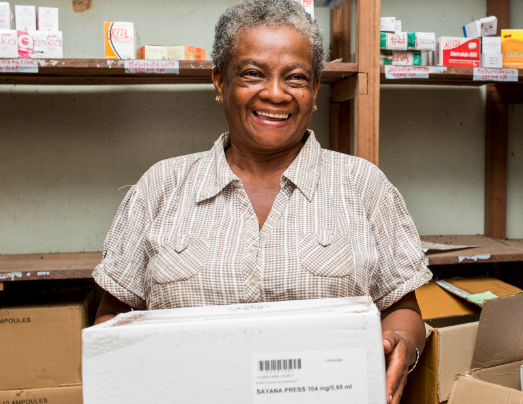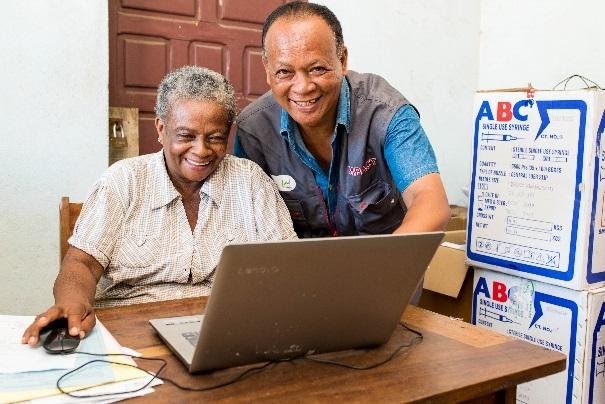Speeches Shim

Razafiarisoa Fleurette, 57, is a storekeeper at the district pharmacy in Vatomandry, in eastern Madagascar. Her active lifestyle and devotion to her work motivated her to take on a challenge that has benefitted her and her community. The Vatomandry pharmacy supplies 25 health facilities in the district with essential health commodities. In her day-to-day work, Fleurette establishes the pharmacy’s quarterly orders from SALAMA, Madagascar’s central source for essential medical supplies and equipment, receives the health commodities from SALAMA, and prepares deliveries to health facilities.
Fleurette’s passion for her responsibilities shows in everything she does. She spends hours cleaning the warehouse and ensuring everything is well-organized. She has the storage guidelines displayed on the wall and carefully follows them. Her stock records are always kept up to date and when they lack copies, she does not hesitate to pay for copies out of her own pocket. “It is very important to follow storage guidelines to avoid deterioration of commodities. Destruction of drugs should be avoided at all costs given the number of patients who need them,” she says. ![]()
Fleurette has gained entirely new skills from training in IT and best storage practices, provided by USAID’s IMPACT project. IMPACT helps storekeepers like Fleurette strengthen their capacities in stock inventory management and how to collect and use data to ensure Madagascar’s citizens can get the medicines and health equipment they need. “This training was very important for me because it was the first time I ever used a computer. I never thought I would be able to use a computer and even use a software like Channel.”

Before the training, Fleurette needed her colleagues’ help to send logistic information through the Channel software. Now, she can administer the data herself and ensures they are correctly entered. “I am very happy to put in practice what I’ve learned. It really helps me do my work better. Accurate logistic information contributes to avoid stock outs and ensures continuous supplies to patients,” says Fleurette.

Comment
Make a general inquiry or suggest an improvement.